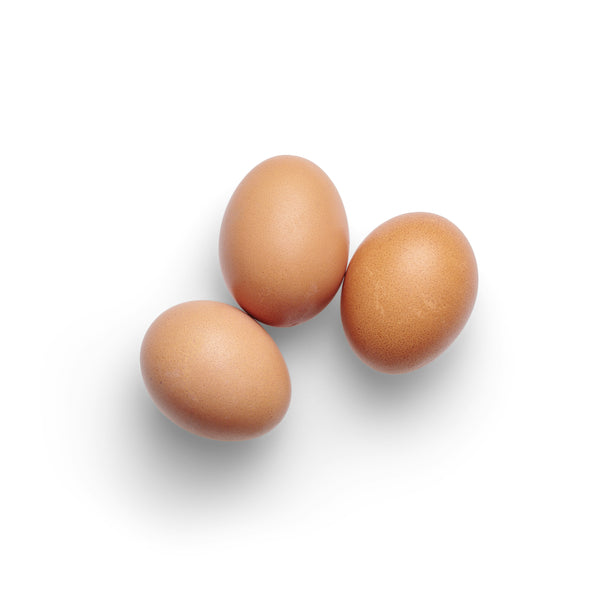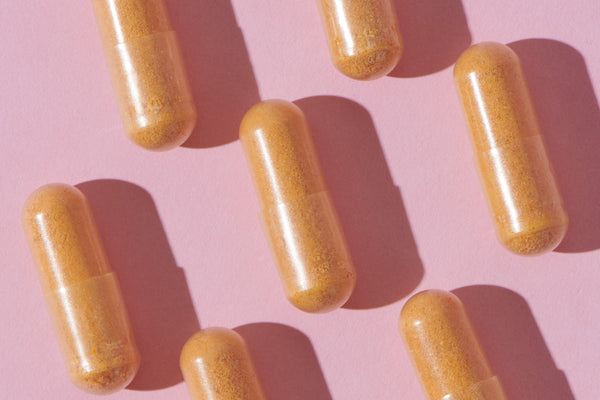Jump to:
As a breastfeeding mother, your body is working hard to nourish and support your baby’s growth. Among the essential nutrients needed during this time, Omega-3 fatty acids, particularly DHA (docosahexaenoic acid) and EPA (eicosapentaenoic acid), play a key role in postpartum recovery and baby’s development.
While fish oil is a well-known source of Omega-3s, plant-based alternatives like algae-derived DHA and EPA offer a clean, sustainable, and vegan-friendly option. In this article, we’ll explore why Omega-3 is important for breastfeeding mothers, how it supports baby’s health, and the best plant-based sources to ensure optimal nutrition for both mum and baby.
Why Is Omega-3 Important for Breastfeeding Mothers?
Omega-3 fatty acids are essential fats that the body cannot produce in sufficient amounts, making dietary intake or supplementation crucial. During the postpartum period, these fats support:
-
Brain function & mental clarity
DHA is a major structural component of the brain and helps with cognitive function.
-
Mood stability & emotional well-being
Some studies suggest that adequate Omega-3 intake may help regulate mood and reduce the risk of postnatal depletion【National Institutes of Health (NIH)】.
-
Cardiovascular health
Omega-3s contribute to healthy blood circulation and heart function, which is especially important as the body recovers from pregnancy and childbirth.
-
Inflammation & postpartum recovery
EPA, in particular, is believed to have anti-inflammatory properties, which may help support recovery and overall wellbeing.
Because breastfeeding places extra nutritional demands on the body, ensuring adequate Omega-3 intake can help support both short-term recovery and long-term health.
How Does Omega-3 Benefit Babies Through Breastfeeding?
Omega-3 fatty acids, especially DHA, pass through breast milk to support your baby’s development. Research suggests that DHA is important for:
-
Brain & cognitive development
DHA is one of the primary fatty acids in the brain, contributing to memory, problem-solving, and learning. Some studies suggest that higher DHA intake in breastfeeding mothers may be linked to better cognitive function in infants【Cochrane Review, Omega-3 Fatty Acids in Pregnancy】.
-
Visual development
DHA is found in high concentrations in the retina, which plays a role in early vision development【American Pregnancy Association】.
-
Immune system support
Some research suggests that Omega-3s may help regulate immune function and support overall health in growing babies.
Since breastfed babies rely on maternal nutrition, ensuring a consistent intake of DHA and EPA through diet or supplementation can help provide essential support for their early development.
What Are the Best Plant-Based Sources of Omega-3?
Many people associate Omega-3 with fish, but there are excellent plant-based sources that offer the same benefits. These include:
1. Algae Oil (Best Source of DHA & EPA)
-
Algae is the original source of DHA and EPA, which fish obtain by consuming marine algae.
-
Algae oil supplements provide a direct and efficient way to get bioavailable Omega-3s without contaminants like mercury or microplastics.
-
Explore our plant-based Omega-3 supplements.
2. Flaxseeds & Chia Seeds (Rich in ALA)
-
These seeds are high in alpha-linolenic acid (ALA), a type of Omega-3 that the body can convert into DHA and EPA—though the conversion rate is limited.
-
They also contain fibre and antioxidants, making them great additions to a breastfeeding diet.
3. Walnuts & Hemp Seeds
-
These are good sources of ALA, but like flaxseeds and chia, they require conversion to DHA and EPA.
-
While they provide healthy fats and nutrients, they may not be sufficient as the sole Omega-3 source for breastfeeding mothers.
Why Algae-Based Omega-3 Is Recommended
Since the body has limited ability to convert ALA into DHA and EPA, direct supplementation with algae-derived Omega-3 ensures breastfeeding mothers meet their needs efficiently.
How Much Omega-3 Do Breastfeeding Mothers Need?
According to health organisations such as the American College of Obstetricians and Gynecologists (ACOG), a daily intake of 200–300 mg of DHA is recommended for breastfeeding mothers to support their overall nutritional needs during this stage【ACOG, Nutrition During Pregnancy】. While signs such as changes in mood, dry skin, or difficulty concentrating may be influenced by many factors, maintaining a well-balanced diet that includes Omega-3 fatty acids can contribute to general wellbeing.
For those who follow a plant-based diet or do not regularly consume Omega-3-rich foods, algae-based DHA and EPA supplements may be considered as an alternative source. It is recommended to consult with a qualified healthcare professional before introducing any new supplement to ensure it aligns with your individual needs.
If you don’t regularly eat Omega-3-rich foods, supplementing with a high-quality algae-based DHA/EPA supplement can help bridge the gap. Explore our postnatal supplements here.
Choosing a High-Quality Plant-Based Omega-3 Supplement
When selecting an Omega-3 supplement, look for:
✔ Algae-derived DHA & EPA – The most efficient plant-based source of Omega-3s.
✔ Third-party testing – Ensures the product is free from contaminants like heavy metals.
✔ Sustainable sourcing – Algae is a renewable and environmentally friendly option.
For personalised guidance, consider booking a naturopathic consultation to determine the best Omega-3 supplement for your needs.
Support Mum & Baby with Plant-Based Omega-3
Omega-3 fatty acids are essential for both breastfeeding mothers and their babies, supporting postpartum recovery, mood regulation, and infant brain development. While traditional sources include fish oil, plant-based alternatives like algae-derived DHA and EPA offer a safe, sustainable, and effective option.
If you're looking for a high-quality vegan-friendly Omega-3 supplement, explore our postnatal supplement collection or contact us for more information.
Disclaimer: This article is intended for informational purposes only and does not constitute medical advice. Always consult with a healthcare professional before making dietary changes or beginning a new supplement routine.






